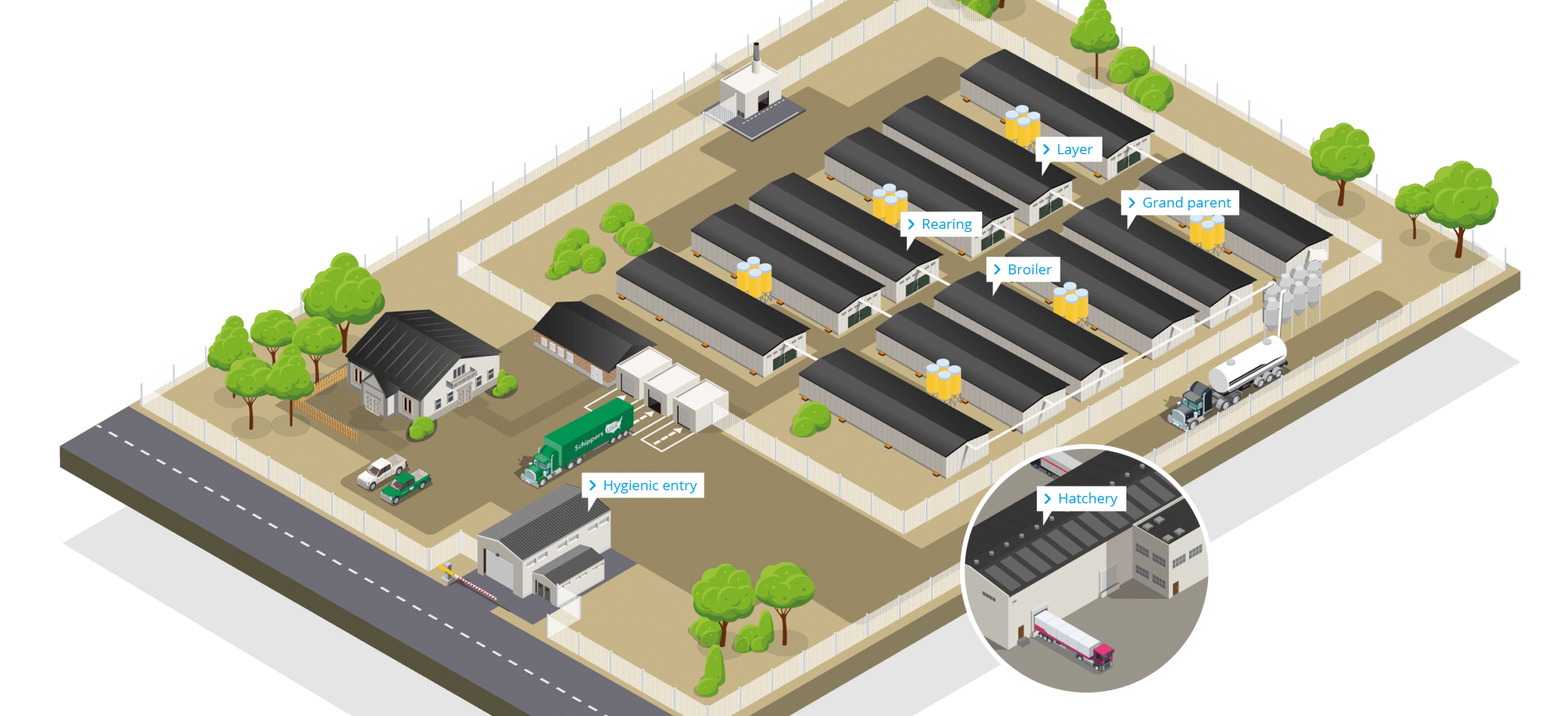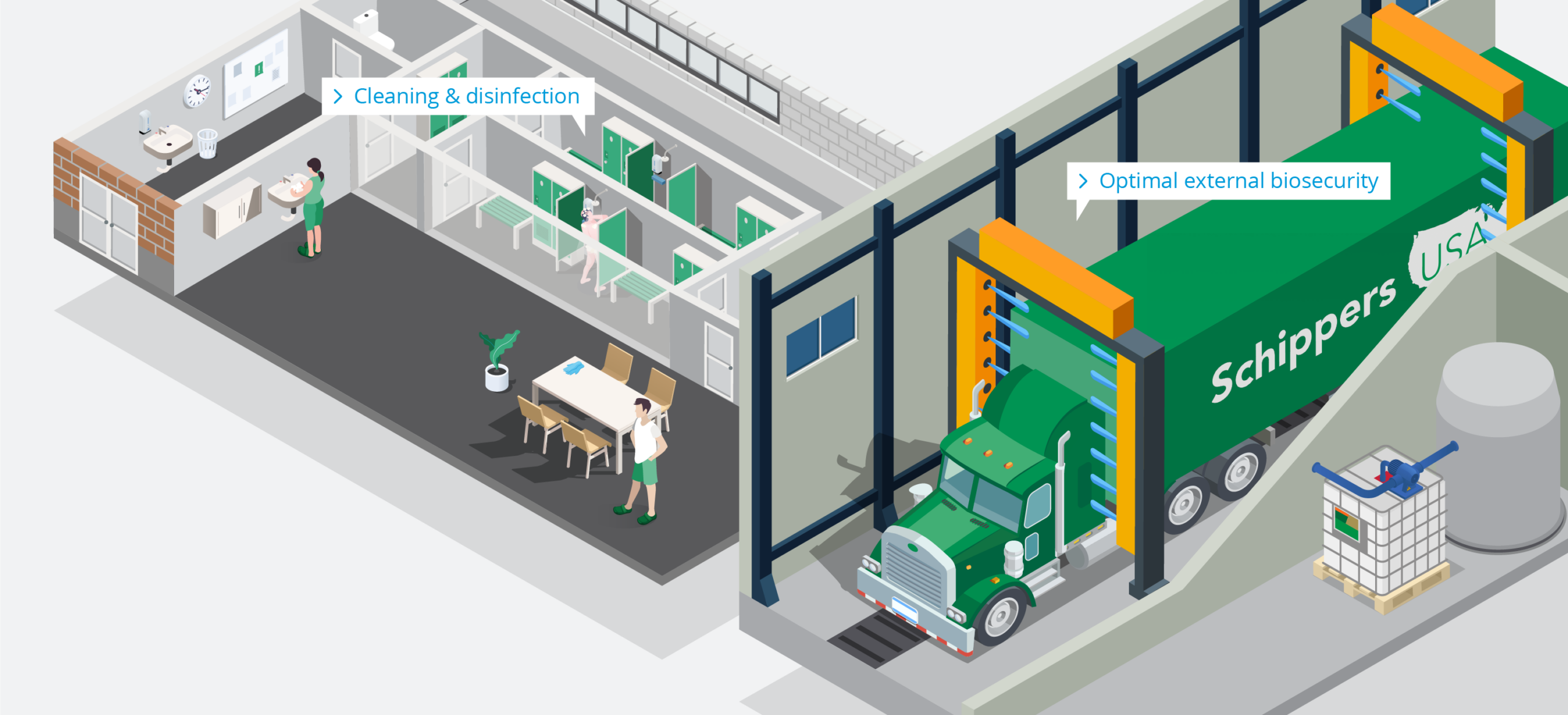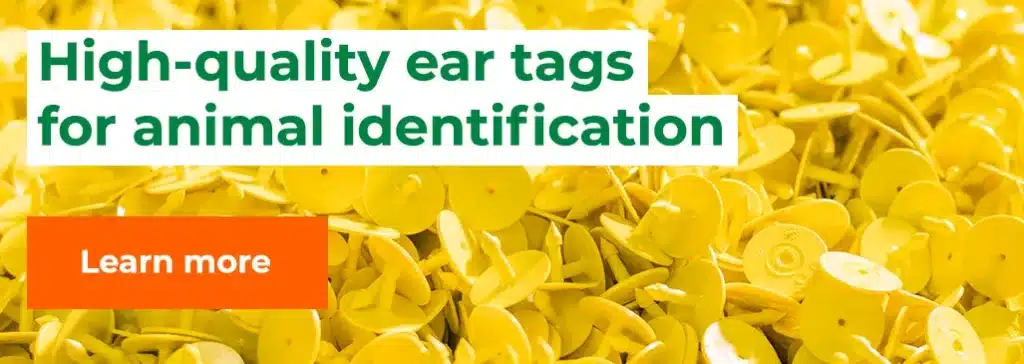
Hatchery
The hatchery is a specialized facility in the poultry industry where fertile eggs are incubated under controlled conditions to hatch into chicks.
Rearing
Rearing farms providing optimal conditions that promote the healthy growth and preparation of the young birds for their future roles as egg-laying hens or broilers.
Broiler
A broiler farm is dedicated to raising chickens specifically for meat production. The chickens in these farms are known as broilers. These farms focus on efficiently producing chickens that reach market weight within a relatively short period, typically around 5 to 7 weeks, depending on the desired size, market preferences and regulations.
Grand parent
A grandparent (GP) farm, also known as a grandparent stock farm, is a specialized facility in the poultry industry that is dedicated to breeding and producing the initial generation of breeding birds. These breeding birds serve as the foundation for the production of parent stock, which in turn produces the commercial broilers or layers that are raised for meat or egg production.
Layer
A layer farm is dedicated to raising hens specifically for egg production. In a layer farm, the primary focus is on maximizing egg production while maintaining the health and well-being of the laying hens. These hens are referred to as "layers" because they are raised primarily to lay eggs that are collected for human consumption.
Hygienic entry
The hygienic entry area at a poultry farm refers to a controlled and designated zone where individuals, including farm workers, visitors, and service providers, must adhere to specific hygiene protocols before entering the main production area of the farm.
Biosecurity programsfor poultry farms
Hygienic entry
What are important factors at a hygienic entry?
The main objective is to prevent the introduction of pathogens onto the farm by establishing a designated area for goods, vehicles and people to enter the farm. Strict protocols are enforced in this area to minimize the risk of contamination. By implementing measures such as cleaning and disinfection, personnel hygiene, and quarantine, a controlled process can be created. The HyCare program is comprehensive and can be tailored to meet the operational requirements of your farm.
Common challenges
- The risk of disease introduction
- Disease transmission through farm visitors, equipment and vehicles
- Disease transmission via pests
- Establishing a culture to follow protocols
- Consistently applying hygiene measures
- Farm design and facilities
- Carcass management
HyCare biosecurity programs for the hygienic entry area

Optimal external biosecurity
This HyCare program focuses on implementing measures that prevent the transmission of disease from external sources to the farm. These can include an efficient hygiene lock for visitors and personnel and a well-working disinfection gate for vehicles. Together with comprehensive hygiene measures, these elements will ensure that (re)contamination will not be possible.
Cleaning and disinfection
Cleaning and disinfecting vehicles before entering the farm is crucial to prevent cross-contamination from other farms. Many suppliers visit multiple farms and can unknowingly spread pathogens during their visits. Limiting the risk of disease introduction is crucial to maintaining a low pathogen environment and setting up a biosecure environment for the animals.
This HyCare program focuses on implementing measures that prevent the transmission of disease from external sources to the farm. These can include an efficient hygiene lock for visitors and personnel and a well-working disinfection gate for vehicles. Together with comprehensive hygiene measures, these elements will ensure that (re)contamination will not be possible.
Cleaning and disinfecting vehicles before entering the farm is crucial to prevent cross-contamination from other farms. Many suppliers visit multiple farms and can unknowingly spread pathogens during their visits. Limiting the risk of disease introduction is crucial to maintaining a low pathogen environment and setting up a biosecure environment for the animals.

Contact us
Cuong Nguyen
Cuong Nguyen is our Technical Sales Manager and based in Ho Chi Minh City.
